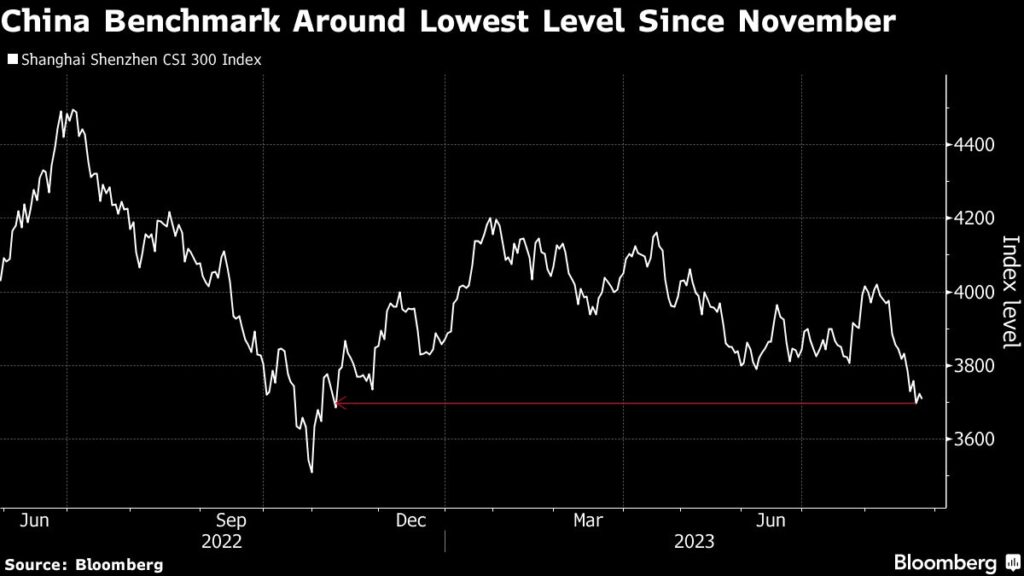(Bloomberg) — China lowered the stamp duty on stock trades for the first time since 2008 and pledged to slow the pace of initial public offerings, among a slew of new measures to woo investors back to its flagging equities market.
Most Read from Bloomberg
The levy charged on stock trades will drop from 0.1% to 0.05% as of Aug. 28, the Ministry of Finance said in a statement Sunday, in a move to “invigorate capital markets and boost investor confidence.”
The China Securities Regulatory Commission cited “recent market conditions” as its rationale for slowing the pace of IPOs, without giving details on how it would do so. The CSRC also said restrictions will be set on the frequency and size of refinancing for companies which continuously report financial losses and whose stock prices have fallen below IPO levels or net asset levels. Property developers are exempted from the rule, it said.
Authorities have been trying to disspell worries about the economy triggered by a slumping property market, trust defaults and weak consumer spending. Foreign investors sold mainland China stocks on a net basis for 13 consecutive sessions through Wednesday, the longest stretch ever, data compiled by Bloomberg show.
The CSI 300 Index has declined about 4% in 2023 after back-to-back annual losses and is underperforming a broader gauge of Asian equities by about six percentage points. Authorities this month urged pension funds, large banks and other big domestic financial institutions to increase stock investments to support the market.
Regulators have also cut handling fees on stock transactions, prodded mutual fund managers to increase purchases of their own equity funds and encouraged companies to do more share buybacks.
China last cut the stamp duty in April 2008, reducing it to 0.1% to support the market after a plunge, spurring a bull run the following year. The year prior, in May 2007, it raised the rate to 0.3% to cool a rally that was drawing more than 300,000 new investors a day.
Other highlights of the measures announced by CSRC on Sunday:
-
Margin ratio for margin trading is lowered to 80% from 100%, effective from market closing on Sept. 8
-
For companies with stock prices fallen below IPO levels or net asset levels, or which haven’t paid cash dividends or which are paying a total cash dividend lower than 30% of average net profit of the recent three years, the controlling share holders and de facto controlling holders will not be allowed to cut holdings in the secondary market
(Added details throughout)
Most Read from Bloomberg Businessweek
©2023 Bloomberg L.P.


